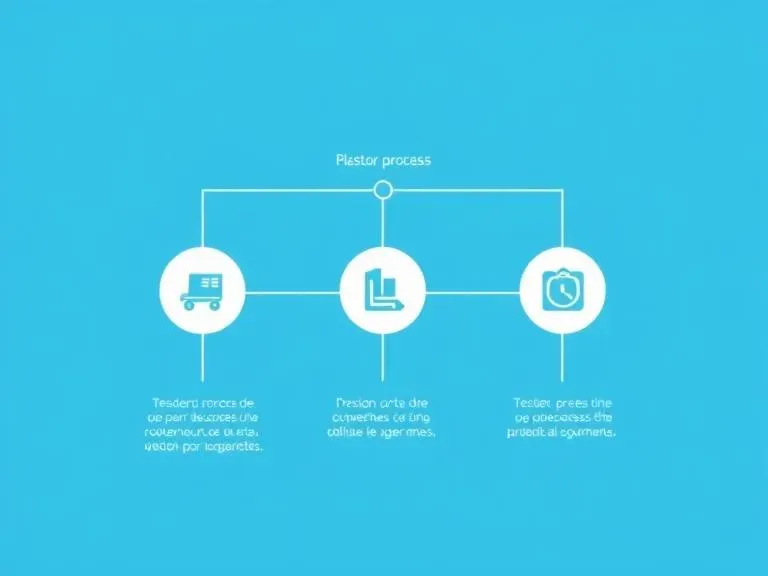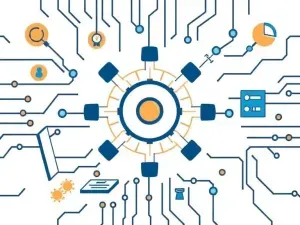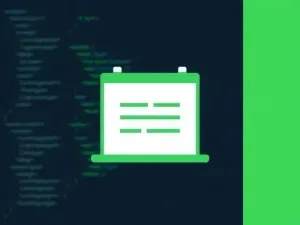At OnnaSoft, we focus on thoroughly understanding your business to offer you accurate, secure software or Odoo configurations that are ready to grow with you. This document details the process we follow to transform your needs into effective digital solutions. We seek close and transparent collaboration, ensuring that the final result exactly meets your expectations and optimizes your operations.
Phase 1: Initial Meeting - Diagnosis and Requirements Gathering
The starting point of each project is a deep conversation. The goal of this initial phase is to fully understand your business, the challenges you face, and the opportunities you want to exploit. It's not just about listening to what you want, but understanding why you want it. This understanding allows us to propose the most effective solution, even if it differs slightly from your original idea.
Key Objectives
- Understand Your Business: We dedicate time to getting to know your industry, business model, current processes, and team dynamics.
- Identify the Problem or Need: We precisely define the problem you are trying to solve or the need you are looking to satisfy. This can range from automating repetitive tasks to implementing a comprehensive enterprise management system.
- Detailed Requirements Gathering: This is the heart of the initial phase. We carefully document all functional and non-functional requirements:
- Functional Requirements: Describe what the software or configuration should do. Examples: "The system must automatically generate invoices", "Users must be able to access sales reports by region", "The system must integrate with our e-commerce platform".
- Non-Functional Requirements: Specify how the system should function. Examples: "The system must be accessible from mobile devices", "The response time for queries must be less than 2 seconds", "The system must ensure the confidentiality of customer data".
- Scope Definition: We limit the project scope to ensure its feasibility and success. We identify which functionalities will be included in the first phase and which could be implemented in later stages.
- Stakeholder Identification: We determine who the key people within your organization are who participate in the project and establish efficient communication channels with them.
Phase 1 Deliverables
- Requirements Document: A complete and detailed document summarizing all identified needs, functional and non-functional requirements, and the project scope.
- Mutual Understanding Confirmation: We ensure that both our team and you perfectly understand the project goals and expectations.
Phase 2: Technical and Functional Proposal – Designing the Solution
Once we have thoroughly understood your needs, we move on to the solution design phase. At this stage, we translate the detailed requirements into a concrete proposal that describes how we will address the challenge. Our proposal may involve:
- Custom Development: Creating a completely new application, specifically adapted to your processes and needs.
- Odoo Configuration: Leveraging the flexibility of Odoo to adapt the platform to your requirements, by configuring existing modules, creating new modules, or customizing existing ones.
- Integration with Existing Systems: Connecting the new solution with your current systems (CRM, ERP, marketing tools, etc.) to ensure a smooth data flow and avoid information silos.
Proposal Components
- Detailed Solution Description: A clear and concise explanation of how we will address the problem, including the modules, functionalities, and technologies that will be used.
- Solution Architecture: A diagram illustrating the structure of the solution, the interactions between its components, and the integration with other systems.
- Project Timeline: A realistic calendar indicating the start and end dates of each project stage, including key milestones and deliverables.
- Detailed Budget: An accurate estimate of the costs associated with development, implementation, testing, and solution support.
- Project Management Plan: A document describing how we will manage the project, including communication, risk management, and quality control.
In the case of Odoo, the proposal will highlight the benefits of using a robust and scalable platform like Odoo, as well as our experience as a certified partner. In addition, we offer fast and secure infrastructure to host your Odoo instance, guaranteeing optimal performance and the protection of your data. This infrastructure is designed to scale with your business, ensuring you always have the necessary resources.
Example (Illustrative, not complete code)
Imagine you need to optimize inventory management. The proposal could include a simplified diagram of the interaction between the Odoo “Inventory” and “Sales” modules, showing how a sale in the sales module automatically triggers an update in inventory stock. This diagram allows you to quickly visualize how the solution addresses the problem.
Phase 3: Execution – Agile and Modular Implementation
Once the proposal is approved, the execution phase begins. We use an agile, iterative, and incremental methodology, which means we work in short cycles (sprints) to deliver functionalities continuously.
Key Principles of Execution
- Agile Methodology: This methodology allows us to adapt quickly to changes and deliver value continuously. We will break the project into smaller, more manageable tasks and prioritize them based on their value to your business.
- Modular Development: We build the solution in independent modules that can be tested and deployed separately. This facilitates system maintenance and scalability.
- Continuous Monitoring: We will maintain fluid communication with you throughout the process, providing you with regular updates on project progress, challenges we face, and decisions we need to make. We will schedule periodic meetings to review progress and adjust the plan if necessary.
- Quality Control: We will implement rigorous quality controls at each stage of development to ensure the solution meets your requirements and quality standards.
- Version Control: We will use a version control system to track changes made to the code and facilitate reverting to previous versions if necessary.
Tools Used
We use collaborative project management tools so you can track progress in real time, access documentation, and communicate with the team. These tools promote transparency and collaboration.
Phase 4: Testing and Validation – Ensuring Quality
Before the final delivery, we subject the solution to thorough testing to ensure it works correctly and meets your expectations. This phase involves your active participation.
Types of Tests
- Unit Tests: Verify that each individual module of the solution works correctly.
- Integration Tests: Check that the different modules interact correctly with each other.
- System Tests: Evaluate the solution as a whole to ensure it meets all functional and non-functional requirements.
- User Acceptance Testing (UAT): This is the most important phase. You and your end-users test the solution in a real environment to validate that it meets their needs and expectations.
- Performance Tests: Evaluate the system’s ability to handle the expected workload.
- Security Tests: Identify and correct potential security vulnerabilities.
Validation Process
- Test Case Preparation: Together we define test cases that cover all aspects of the solution.
- Test Execution: Your team executes the test cases and records the results.
- Error Correction: Our team corrects any errors or defects identified during testing.
- Re-Testing: Once the errors are corrected, the tests are run again to verify that the solution works correctly.
- Final Approval: Once you have confirmed that the solution meets your expectations, we approve it and proceed with delivery.
Phase 5: Delivery and Support – Ongoing Support
Delivery is not the end of the process, but the beginning of a long-term relationship. We provide ongoing support to ensure you get the most out of the solution and can resolve any questions or problems that may arise.
Delivery Components
- Production Implementation: We deploy the solution to your production environment, ensuring a smooth and seamless transition.
- Complete Documentation: We provide you with detailed documentation on the solution, including user manuals, administration guides, and technical documentation.
- Training: We offer training to your end-users so they can learn to use the solution effectively.
- Technical Support: We provide you with ongoing technical support to resolve any questions or problems that may arise. We offer different levels of support, depending on your needs.
- Evolutionary Maintenance: We offer evolutionary maintenance services to add new functionalities, improve performance, and adapt to changes in your business.
For Odoo solutions, our specialized support, backed by our certification as an Odoo partner, guarantees a quick response to your questions and an effective solution to your problems.
At OnnaSoft, we believe in building lasting relationships with our clients. Our team is composed of highly skilled and passionate technology professionals, and we are committed to offering you innovative, high-quality solutions. We consider ourselves part of your team and work closely with you to achieve your goals.
We are here to help you every step of the way.
Sincerely,
The OnnaSoft Team.






